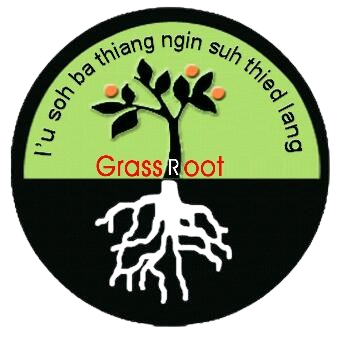Indigenous communities are carriers of traditional wisdom and our spiritual relationship with nature has helped us recognize and identify plants and herbs of nature to heal diseases such as cold, arthritis, fever, diarrhea and many more. This traditional knowledge of IP has been proven to be providing comfort to basic ailments.
Meghalaya is one of the States known as a bed of various medicinal herbs. It is also known as the bank area to preserve and protect the availability of these plants which have been documented orally by our ancestors and passed down from one generation to another.
However, traditional medicinal practitioners have challenges that have deterred and prevented them to pursue the practice that has been passed on for generations for economic sustenance and promotion due to:
- Barriers to continue this practice due to lack of proper documentation as these practices are only passed on through oral history.
- Patent and Intellectual Property Rights where the Government has failed to recognize this as a native trade of livelihood and also a practice that promotes environmental species protection.
- Lack of proper linkages to reach to a wider market.
- Absence of a compounding production unit.
- The absence of a plantation area with conducive weather conditions for different herbs.
Due to the above, traditional medicinal practitioners are hesitant and unable to take up this practice on a large-scale for promotion of their own economic systems.
Goal: Promotion and Preservation of Traditional Knowledge and Practices. Thereby promoting Entrepreneurship and Sustainable Livelihood.
Need for the project:
-The need of the project stems from the fact that women in our Indigenous community contribute about 60 percent of financial support to the family. They work in farms, run house- holds, raise children and also most often subjected to a number of violence such as domestic abuse, unequal pay and no right to political participation in the local body governance.
This project therefore:
1) Aims to promote women leadership through economic empowerment by
strengthening the capacity of women traditional medicinal practitioners as this have long since been a source of traditional livelihood, that is not recognize as a woman’s wisdom too.
2) Youth Involvement in order to prevent teenage pregnancies and equip girls with life skills to make informed decisions. Thereby breaking the cycle of abuse and enhancing their right to Self Determination.
3) Prevention of migration to other cities in search of minimum pay wage jobs.
Why is the project relevant?
At a time when our Indigenous practices are being disregarded, our languages disappearing and our traditional knowledges are also being forgotten, this project will revive the community’s practices, re-open dialogues between the older and the younger generation and re-evaluate certain cultural beliefs such as teenage marriages that put women in a disadvantaged place.
It will also promote native trade practices thereby preventing migration.
Ms. Mayfereen President and Ms. Joy, Secretary of the Organization also envisaged on the Possible risks and challenges that may arise from the project such as:
- Resilence from local governance administration
- Mis-use of information for mass production and capital gains
- Widening of gender divide and roles and responsibilities between practitioners
Hence, strategies to mitigate these risks and challenges will involve
- Sessions on the UNDRIP, SDG, IPR to empower communities with rights and to create a feeling of collective ownership and benefit sharing
- Ensuring documentation and patent rights of IP products.
- Breaking gender stereotypes workshop and discussions will be initiated.
Objectives:
- Promotion for the documentation and preservation of medicinal herbs
Key Activities:
Knowledge Sharing: Session of traditional knowledge by our Elders with the youth through oral story telling
Transit field walks and land mapping where these herbs are usually found
Gender session with Youth (boys and girls) to break gender stereotype
Result(s) or Output(s) expected:
-Promotion of Inter-generational dialogue and sharing and indigenous youth are empowered as rightful custodians and protectors of traditional knowledge and identity.
Key Activities:
-Formation of a registered woman Self Help Group/Micro-co-operative for production of herbal ointments for the treatment of diarrhea, body ache, gastritis etc. This Self Help Group will also act as a group where women come together for the production of other product such as handmade sanitary pads, tea and spices
-Setting up of a production unit in the community where it will act as a meeting space for Self Help Groups
-Capacity Building session on Entrepreneurship (packaging, making and reading financial statements, maintaining of account books)
-Training sessions for girls on Life skills, thereby enhancing their decision making capacities and advocacy skills.
Sessions with local heads and community members on UNDRIP, FPIC, IPR, Self Determination and local mechanisms to address injustice such as the RTI and the FIR
To strengthen women voices and strengthen their capacity as key stake holders in economic activities.
P.S Project beneficiaries will be divided into
- Direct beneficiaries – Women will be the key stake holders in economic enterprises such as the Self Help Group and the production unit.
- Indirect beneficiaries – Men will also be part of the project in enhancing their awareness and knowledge on the different local and international mechanism to address Human Rights violations and to also address gender divide and inequalities.
Result(s) or Output(s) expected:
-Women are self-reliant and enterprising, armed with informed knowledge on Rights and have a voice at the local and national governance.
Indigenous People and Languages:
-Khasi tribe and Khasi language.
The project hope to influence Governing Authorities in the local and regional level whereby protection of traditional knowledge is promoted and IP will be recognized as the key stake holders in native trades promotion.
Secondly, the names of medicinal plants are well documented and patented.

